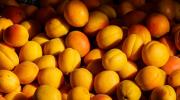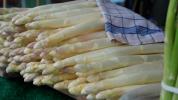Erasmus+ Project: Training in Agriculture and Post-Harvest of Fruits and Vegetables through Sustainable Best Practices
- Type Project
- Status Filled
- Execution 2014 -2016
- Assigned Budget 241.035,00 €
- Scope Europeo
- Autonomous community Aragón
- Main source of financing Erasmus +
Agriculture is one of the most important socioeconomic activities in many European Union countries and a key sector for the development and sustainability of rural areas. In recent decades, rural communities have suffered dramatic depopulation and are also facing other challenges such as territorial imbalances and a lack of generational renewal. Unemployment in rural areas primarily affects services and agriculture.
Furthermore, the following circumstances often occur in the agricultural sector: There is a large proportion of small farms, where farmers only dedicate part of their time to farming, which hinders their professional development. The spatial dispersion of businesses makes access to training difficult. The average age of farmers is very high, with low levels of formal education. Temporary work predominates. The precariousness of temporary workers makes it difficult to provide adequate training. There is a growing need to incorporate new management-related content due to changes in standards for quality, food safety, the environment, and occupational risk prevention. Faced with the challenge of operating in a larger but more competitive market, it is necessary to consolidate those factors that help prevent the abandonment of agricultural activity, improve the training of its professionals, and increase competitiveness. Among these, the design of training activities for a productive sector characterized by a lack of training opportunities adapted to its specific characteristics is particularly important.
Within the framework of the project, the following activities have been carried out:
- Analysis of the related training offer in the countries of the participating partners
- Analysis of the training demands expressed by the target audience in different countries
- Development of a comparative matrix of farmers' competencies in the different countries represented
- Development of a transnational matrix of the skills acquired through the training offered through the NARA project.
- Development of six training modules in the six areas of knowledge mentioned above.
- Design and construction of an online training platform that hosts the developed content
The main objective of the NARA project was to contribute to improving the professionalization of young farmers in Europe, especially those working in the horticultural sector. To this end, project partners worked for two years to develop an online training platform that offers free training in six cross-cutting areas of great interest to the target audience: food safety; post-harvest technologies; logistics and marketing; soil, water, and by-products; packaging; and entrepreneurship.
The main outcome of the project was the design and construction of an online platform offering free and open training for the horticultural sector. The platform is available at: http://training.naraproject.eu/login/index.php
In addition, other objectives have been achieved that have contributed to increasing the impact of the project and are detailed below:
- Direct contact between project partners and more than 350 farmers and/or agricultural students
- Direct contact between project partners and more than 200 organizations, various types of agricultural associations and federations, regional and national institutions, and more, who have collaborated in disseminating the project.
- Good impact of the project in the media and in agri-food magazines
- Project presentation at the 5th National Rural Development Forum, as part of the 2016 International Agricultural Machinery Fair in Zaragoza, Spain.
In the long term, the NARA project will also contribute to:
- Promote the development of new agribusinesses in rural areas.
- Improve farm management and their economic and environmental sustainability.
- Increase the profitability of farms and the purchasing power of farmers.
- Expand export opportunities and access to new markets.
- Name of coordinator/entity: AULA DEI SCIENTIFIC TECHNOLOGICAL PARK FOUNDATION
- Postal address: Avenida Montanana 930, 50059 Zaragoza
- Telephone: 976716976
- Fundacion Parque Cientifico Tecnologico Aula Dei
- INSTITUTO DE CIENCIA Y TECNOLOGÍA DE LUXEMBURGO
- Marketmentoro Ltd
- NUEVAS TECNOLOGIAS PARA EL DESARROLLO DE PACKAGING Y PRODUCTOS AGROALIMENTARIOS CON COMPONENTE PLASTICA SL
- UNIVERSIDAD DE CATANIA







